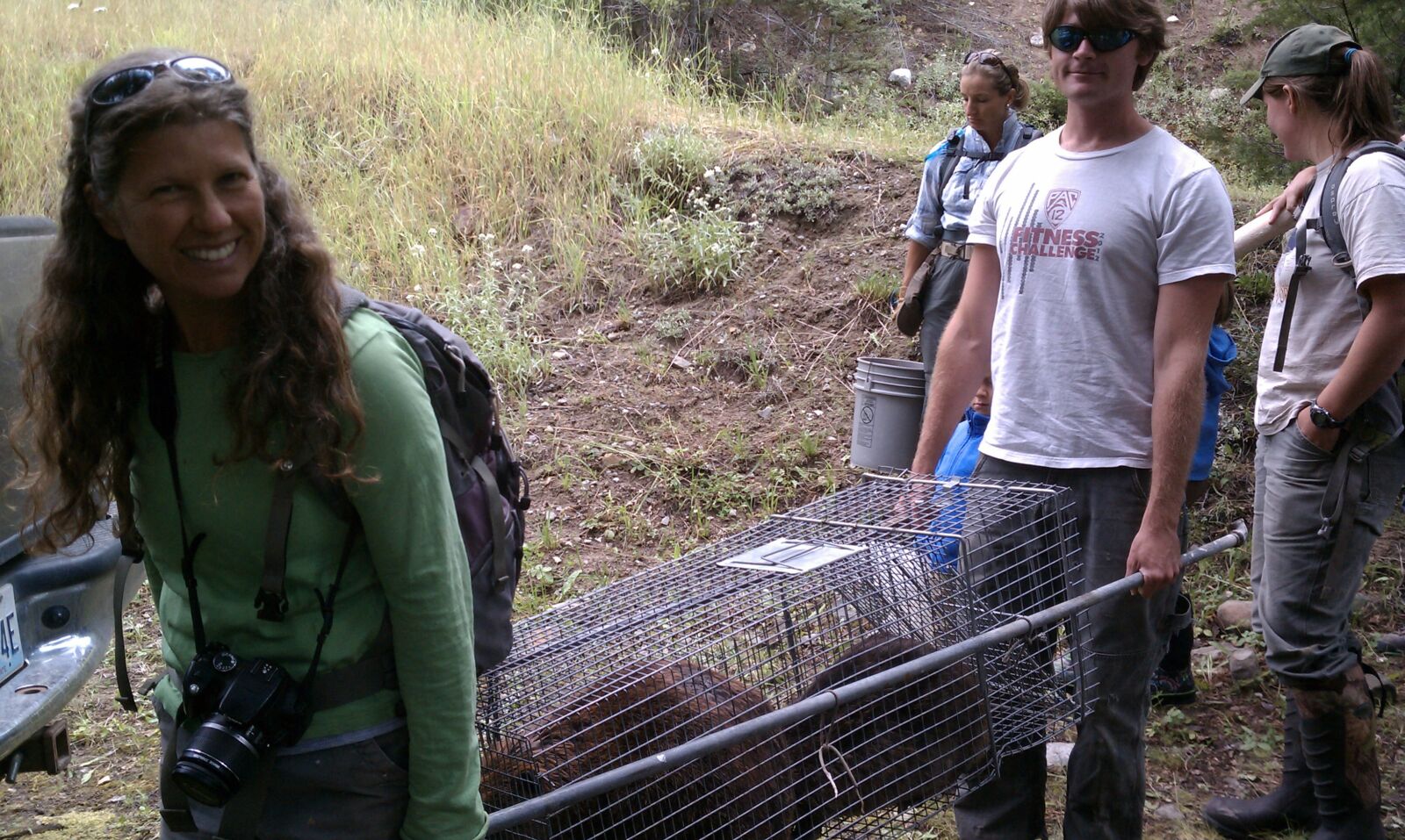The NFF recently partnered with the North Cascades Basecamp Lodge and the U.S. Forest Service to co-host a week-long adventure on the Okanogan-Wenatchee National Forest in the North Cascades region of Washington State, home to one of our 14 Treasured Landscapes conservation campaign sites. Each day we explored different areas of the forest and learned about the individual projects that are a part of the work at this conservation campaign site.
The smiling faces were due to some amazing outings that took place that week.
Day 1 - We hiked the eight-mile Maple Pass Loop during the near peak of wildflower season. With expert guides to lead us, we learned about the recreation impacts that are occurring in this ecologically-sensitive subalpine area, which provides easy access to some of the most amazing mountain views in the entire state.
Day 2 – Our lucky wildlife day! As part of a watershed wide beaver reintroduction project that aims to bring back beavers to areas where they once numbered in the thousands, the group was lucky enough to participate in an actual beaver release. We carried five beavers from a holding facility to a tributary of the Methow River, high in the upper watershed. We released them into a “starter lodge” that the wildlife techs had built just for this purpose, hoping to get them off to a good, safe, and comfortable start in their new home. I think beavers became everyone’s favorite rodent that day.

Day 3 – Volunteerism at work! We met with the Forest Service’s invasive weed specialist and we learned about the many invasive plants that are found on the National Forest and what efforts are underway to control them (including bio-agents – otherwise known as bugs!) Then we put in some service hours ourselves and tackled a patch of oxeye daisy, which as pretty as it is to look at, is not native and is found in many disturbed areas throughout the forest.
Day 4 – Wolverines! While we didn’t see any wolverines, we learned much about them. The Forest Service explained their efforts to monitor the returning population in the North Cascades and better understand their population dynamics and movements throughout the region. The wolverine has been proposed to be listed as a threatened species, primarily due to impacts from climate change, which impacts the snow dens they need to successfully raise their young in the spring. These high mountainous areas of the Okanogan-Wenatchee are some of the best habitat in Washington, making it important to fully understand as much as possible about this amazing animal.
All of this activity in the field was complemented by morning yoga classes, evening presentations, fresh delicious seasonal food prepared by the lodge staff, a visit to the local farmers market and winery, and even a swim in the cold Methow river that runs right by the lodge.
Click here to learn more about our restoration work on the Majestic Methow andsupport our work.

